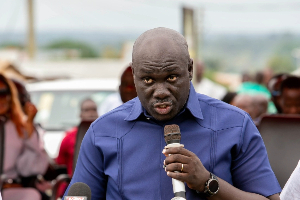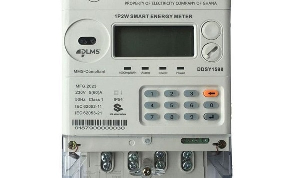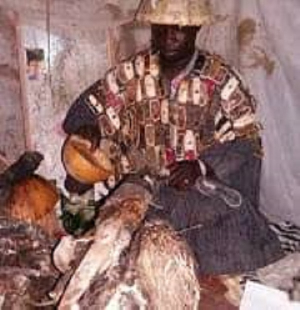The Oti Regional Minister, Hon. Daniel Machator has indicated that the District Road Improvement Programme (DRIP) will enhance local economic development.
Speaking at the launch of the road construction equipment in Dambai, he revealed that the "One District per set of construction equipment" was a special purpose vehicle initiated by the President aimed at decentralising road infrastructure in all metropolitan, municipal and district assemblies (MMDAs) across the country.
"The programme is expected to create direct jobs, stimulate local economic development and reduce post-harvest losses since farmers will have improved roads to transport their farm produce to the market and improve general service delivery across the country", he indicated.
He added: "Government is committed to ensuring equitable distribution of the national cake with effective decentralization mechanisms to benefit every Ghanaian without recourse to the social, economic or political background as well as their geographical location."
Hon. Machator noted that despite the economic challenges posed by the COVID-19 outbreak, which significantly impacted the economy, the government has remained steadfast in its efforts to revive the economy.
To mitigate the hardship faced by citizens, he said the government has initiated several measures to get the economy back on track, stressing that each district in the region will receive a fleet of heavy equipment, including dump truck, backhoe, concrete mixer, roller, bulldozer and motor grader
The Technical Manager of J.A Plant Pool Limited, Mr. Eric Anobaah, stated that his company, in collaboration with their Chinese partners, LiuGong, was providing technical support for the DRIP.
He highlighted that a key aspect of this support was a knowledge transfer program, which will train Ghanaian technicians, including students from technical institutions, in the proper operation and maintenance of the equipment.
He mentioned that DRIP will provide employment opportunities to over 5,000 individuals including drivers, operators, mechanics, welders, sprayers, and janitors among others.
Mr. Anobaah further disclosed that maintenance facilities will be established to provide regular upkeep and servicing of the machines, ensuring they remain in optimal condition and are always ready for use.
This proactive maintenance approach, he explained, will help prevent equipment downtime, extend the lifespan of the machines, and guarantee their continued effectiveness in supporting the DRIP project's objectives.
Regional News of Thursday, 29 August 2024
Source: Jospong Group of Companies

















